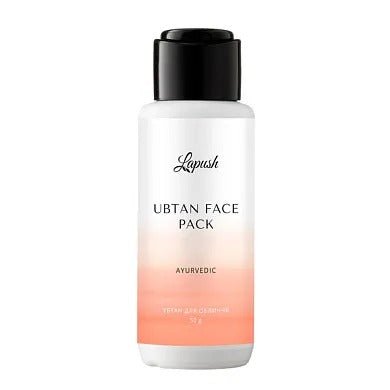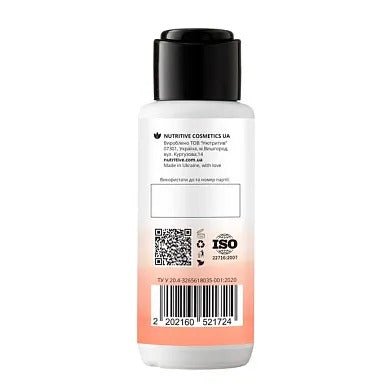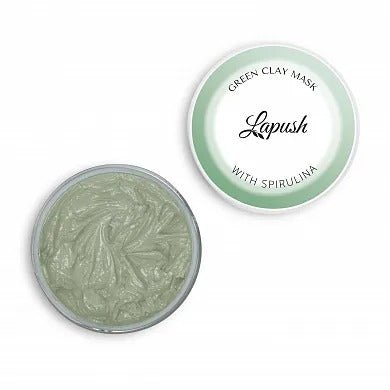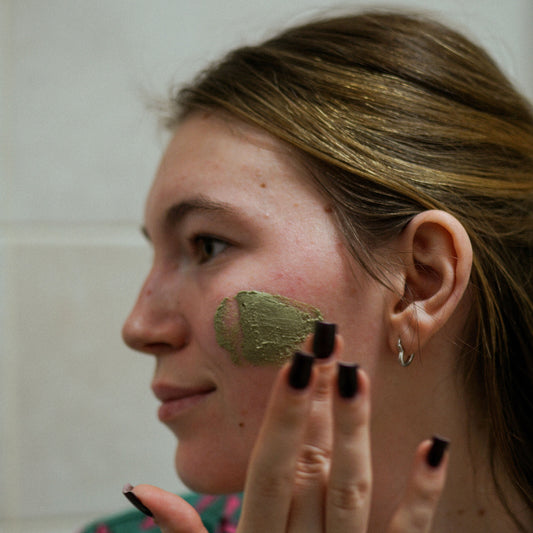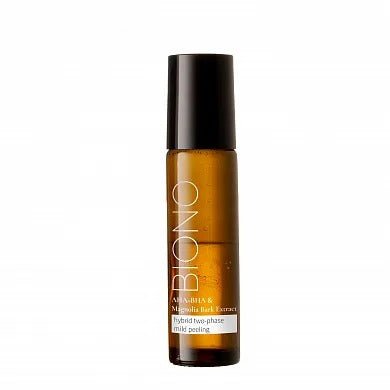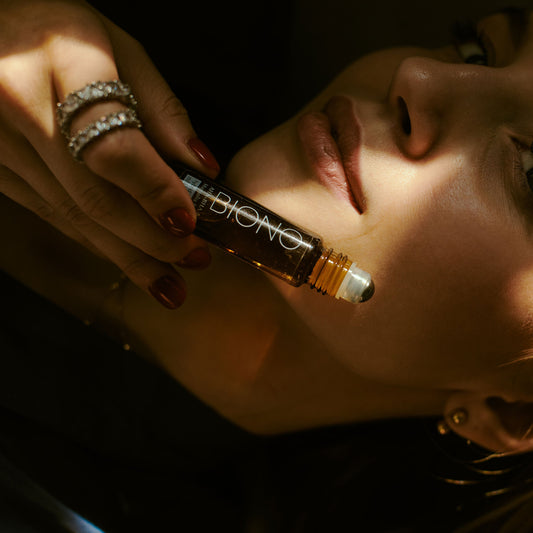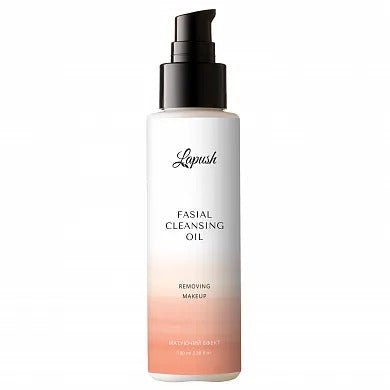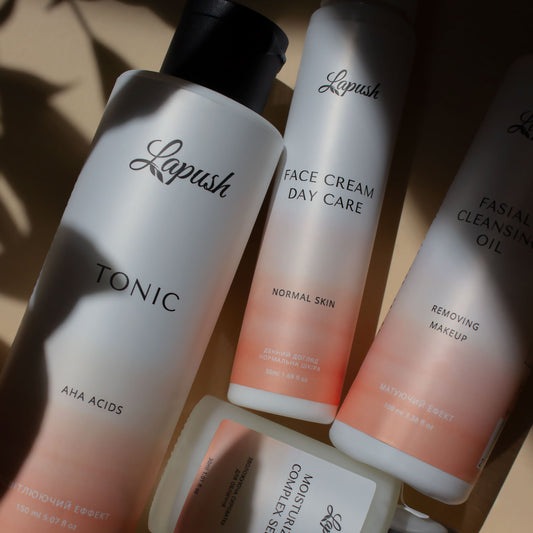
Facial skin care: a comprehensive approach to beauty and health
Facial skin care is not just a daily ritual, but an investment in your health, confidence and longevity. In today's world, where the skin is exposed to stress, pollution, ultraviolet light and hormonal changes every day, a properly built care system is becoming a necessity. Cosmetology experts claim that 80% of skin problems can be prevented or minimized thanks to competent daily care. This material will help you understand all the nuances of facial care - from determining your skin type to creating an effective beauty routine.
Why proper facial care changes everything
Healthy, radiant skin is the result of a systematic and conscious approach to beauty. Facial skin care goes far beyond simple cleansing and moisturizing. It is a comprehensive system that takes into account individual characteristics, age changes, seasonality and external factors. When we understand the needs of our skin, we can choose the products and procedures that really work.
Modern cosmetology offers a huge selection of care products, but without basic knowledge it is easy to get lost in this variety. It is important to understand that expensive cosmetics do not always mean effective, and the correct sequence of applying products can increase their effect many times over. A scientific approach to facial care helps to avoid unnecessary expenses and get real results that can be seen in the mirror every day.

Determining your facial skin type: the foundation for effective care
Before starting facial skin care, it is crucial to correctly determine your skin type. This is a basic step on which all further selection of cosmetics and procedures depends. The main skin types include normal, dry, oily, combination and sensitive. Each type has its own characteristics, needs and reacts differently to external stimuli. Experts recommend conducting a skin type test in the morning, 2-3 hours after waking up, when the skin is in its natural state.
Normal skin is the rarest type and is characterized by balanced sebum production, no enlarged pores and a healthy complexion. Dry skin often feels tight, prone to peeling and early wrinkles due to insufficient hydration. Oily skin produces excess sebum, which leads to shine, enlarged pores and a tendency to acne. Combination skin combines the characteristics of oily skin in the T-zone (forehead, nose, chin) and normal or dry skin on the cheeks.
Sensitive skin deserves special attention, as it reacts with redness, irritation or allergic reactions to many common cosmetic ingredients. It is important to understand that skin type can change throughout life under the influence of hormones, climate, stress and lifestyle. Therefore, experts recommend reviewing your skin care system at least twice a year - in the fall and spring, when the greatest climatic changes occur.
Stages of basic facial skin care: building the right routine
Effective facial skin care consists of several sequential steps, each of which performs its own important function. A basic daily routine includes cleansing, toning, moisturizing and sun protection in the daytime, and nutrition is added in the evening. Skipping even one step can reduce the effectiveness of the entire care system, so it is important to adhere to consistency and regularity.
Morning facial care:
- Gentle cleansing with a soft gel or foam to remove sebum and toxins that have accumulated overnight
- Toning to restore the skin's pH balance and prepare it for the next steps
- Application of serum with active ingredients (vitamin C, hyaluronic acid)
- Moisturizing with cream according to skin type
- Mandatory protection with an SPF filter of at least 30, even in cloudy weather
Evening skin care should be more intensive, because it is at night that the most active processes of cell regeneration occur. Cleansing in the evening should be a two-step process: first, remove makeup and impurities with hydrophilic oil or micellar water, then deep cleanse with foam. After toning, you can use a serum with retinol or peptides, and finish the care with a nourishing night cream. Two to three times a week, you should add intensive masks - cleansing for oily skin or moisturizing for dry skin.
An important point in facial care is the correct technique of applying products. All products are applied along massage lines, from the center of the face to the periphery, with light massaging movements of the fingertips. This improves microcirculation, promotes better penetration of active ingredients and prevents skin stretching. It is worth taking a break of 1-2 minutes between applying different products so that the previous product has time to be fully absorbed.

Active Skincare Ingredients: What Really Works
Modern cosmetology offers a variety of active ingredients, but facial skin care becomes most effective when you understand exactly what components your skin needs. Hyaluronic acid is one of the most popular moisturizers, capable of holding 1000 times its own weight in water. It is suitable for all skin types, does not cause comedones and works at different levels of the epidermis. Vitamin C is a powerful antioxidant that lightens pigmentation, stimulates collagen production and protects against free radicals.
Retinol is considered the gold standard in anti-aging care, as it accelerates cell renewal, smoothes wrinkles and improves skin texture. However, it should be introduced gradually, starting with low concentrations, and used exclusively in the evening, necessarily supplemented with sunscreen during the day. Niacinamide (vitamin B3) is a universal ingredient that is suitable even for sensitive skin, reduces pores, controls sebum and strengthens the protective barrier. Peptides work as signaling molecules, stimulating the production of collagen and elastin, which is especially important after 30 years.
Natural oils such as jojoba, argan, rosehip provide deep nourishment and are suitable for dry and mature skin in facial care. AHA and BHA acids (glycolic, lactic, salicylic) perform chemical peeling, remove dead skin cells and stimulate skin renewal. It is important not to combine incompatible ingredients: for example, retinol and acids can irritate the skin, and vitamin C in the form of ascorbic acid is not friendly with niacinamide in some formulas. Professional consultation with a cosmetologist will help create the optimal combination of assets specifically for your skin type.
Seasonal features of facial skin care
Facial skin care should adapt to seasonal changes, as the skin reacts differently to cold, heat, dry air from heating or the summer sun. In winter, the skin needs increased protection and nutrition due to low temperatures, wind and dry indoor air. During this period, it is worth switching to thicker cream textures, adding nourishing oils and avoiding too aggressive cleansing so as not to disrupt the protective lipid barrier.
Spring and summer facial care:
- Lightening textures: replacing thick creams with light emulsions and gels
- Increased SPF protection to 50+ due to intense solar radiation
- Adding antioxidants to protect against photoaging
- Regular use of moisturizing masks after sunbathing
- Caution with acids and retinol due to increased photosensitivity
In autumn, the skin needs to recover from summer stress and prepare for the cold. This is the perfect time for intensive restorative courses with retinol, peptides and peeling procedures. Facial skin care in autumn may include salon procedures that are not recommended in summer: deep chemical peels, laser resurfacing, intensive courses of retinoids. This is also the time to restore the hydrolipidic balance of the skin with special products with ceramides, squalene and cholesterol.
Regardless of the season, there are universal rules: daily use of SPF, sufficient water consumption (at least 1.5-2 liters per day), healthy sleep and a balanced diet. These factors affect the condition of the skin no less than the most expensive cosmetics. Experts also recommend having two sets of cosmetics — for the warm and cold seasons — to always provide the skin with the care it needs at a particular moment.

Facial skin care at different ages: from 20 to 60+
Facial skin care should evolve with age-related changes in the body, because the needs of the skin at 25 are radically different from those at 45. At the age of 20-30, the main focus is on prevention: sun protection, antioxidants, basic hydration and maintaining a healthy balance. This is a period when the skin still has a high ability to regenerate, so it is important not to overload it with aggressive products, but also not to ignore basic care.
After 30 years, the first age-related changes begin: collagen production decreases, cell renewal slows down, and the first fine lines may appear. Facial care at this age should include retinoids, peptides, intensive moisturizing, and active antioxidants. It is now worth starting to use a cream for the skin around the eyes, as this area is most prone to early wrinkles. Regular courses of professional peeling and biorevitalization can significantly slow down the aging process.
In the period of 40-50+ years, the skin undergoes hormonal changes, especially in women during menopause. Estrogen production decreases, which leads to loss of elasticity, dryness and deepening of wrinkles. Facial skin care in adulthood should be as nutritious as possible: thick creams with retinol, growth factors, ceramides, peptides and oil. It is also important to pay attention to the facial contour and décolleté area, which are often forgotten in daily care. Combining home care with regular salon procedures (RF-lifting, mesotherapy, hyaluronic acid injections) gives the best results in preserving youthful skin.
Common mistakes in facial care and how to avoid them
Even the most expensive cosmetics will not give results if facial skin care is accompanied by typical mistakes. One of the most common is excessive cleansing, when people use aggressive products twice a day, completely depriving the skin of its natural protective barrier. This leads to dryness, irritation and paradoxically - to increased sebum production, as the skin tries to compensate for the loss of lipids. Proper cleansing should be delicate, with pH-balanced products.
Another critical mistake is ignoring sunscreen or using it only in the summer at the beach. UV radiation is responsible for 80% of premature skin aging, pigmentation, and even skin cancer. Taking care of your face without daily SPF is a waste of effort, as all other anti-aging products will not be able to compensate for the damage caused by the sun. Sunscreen should be applied every day, regardless of the weather, even if you spend most of your time indoors, as glass does not block UVA rays.
Many people also make the mistake of trying to use too many active ingredients at once or constantly changing cosmetics, not giving them time to take effect. The skin needs time - at least 4-6 weeks - to adapt to new products and show results. Facial skin care requires patience and consistency. It is also important not to forget about hygiene: wash makeup brushes regularly, do not touch your face with dirty hands and change pillowcases at least once a week. These simple rules can significantly improve the condition of your skin even without additional spending on cosmetics.
Natural care and home recipes: pros and cons
The trend toward natural skincare is gaining popularity, but it's important to understand both the benefits and limitations of home remedies. Natural ingredients—honey, oatmeal, yogurt, aloe vera, oils—can actually be beneficial for your skin, thanks to their vitamins, antioxidants, and moisturizing properties. They're often gentler on sensitive skin than synthetic products, and they're free of parabens, sulfates, and artificial fragrances.
However, professional cosmetics have significant advantages: stabilized formulas with precise dosage of active ingredients, clinically proven effectiveness, optimal pH and preservatives that prevent bacterial growth. Homemade masks can be a great addition to basic facial care, but they are not able to replace full-fledged anti-aging or therapeutic cosmetics. Some natural ingredients, such as lemon or soda, can even be harmful due to too high or low acidity.
If you decide to supplement your facial skin care with natural products, follow safety rules: always test new ingredients on a small area of skin, use only fresh products, do not store homemade cosmetics for more than 24 hours, and avoid aggressive ingredients on sensitive skin. A moisturizing avocado and honey mask, a delicate oatmeal scrub, or a soothing aloe mask can be a pleasant and useful addition to your beauty routine, but the basic steps of care are better left to trusted professional cosmetics.
Conclusions: creating our ideal facial skin care system
Effective facial skin care is not about the number of products on the shelf, but about understanding your skin's needs and taking a systematic approach. Start by determining your skin type, build a basic routine with quality cleansers, toners, moisturizers, and sun protection, and then gradually add targeted products with active ingredients according to your needs. Remember that results don't come instantly - give your skin time to adapt and renew, be consistent, and don't forget about a comprehensive approach: a healthy lifestyle, enough sleep, a balanced diet, and stress management.
Investing in proper facial care today is an investment in your confidence and health for many years to come. Don't be afraid to experiment, but do it wisely, consult a specialist when necessary, and listen to your skin. It will always tell you what it needs - the main thing is to learn to understand these signals and respond to them in time. Let your skin shine with health at any age!

